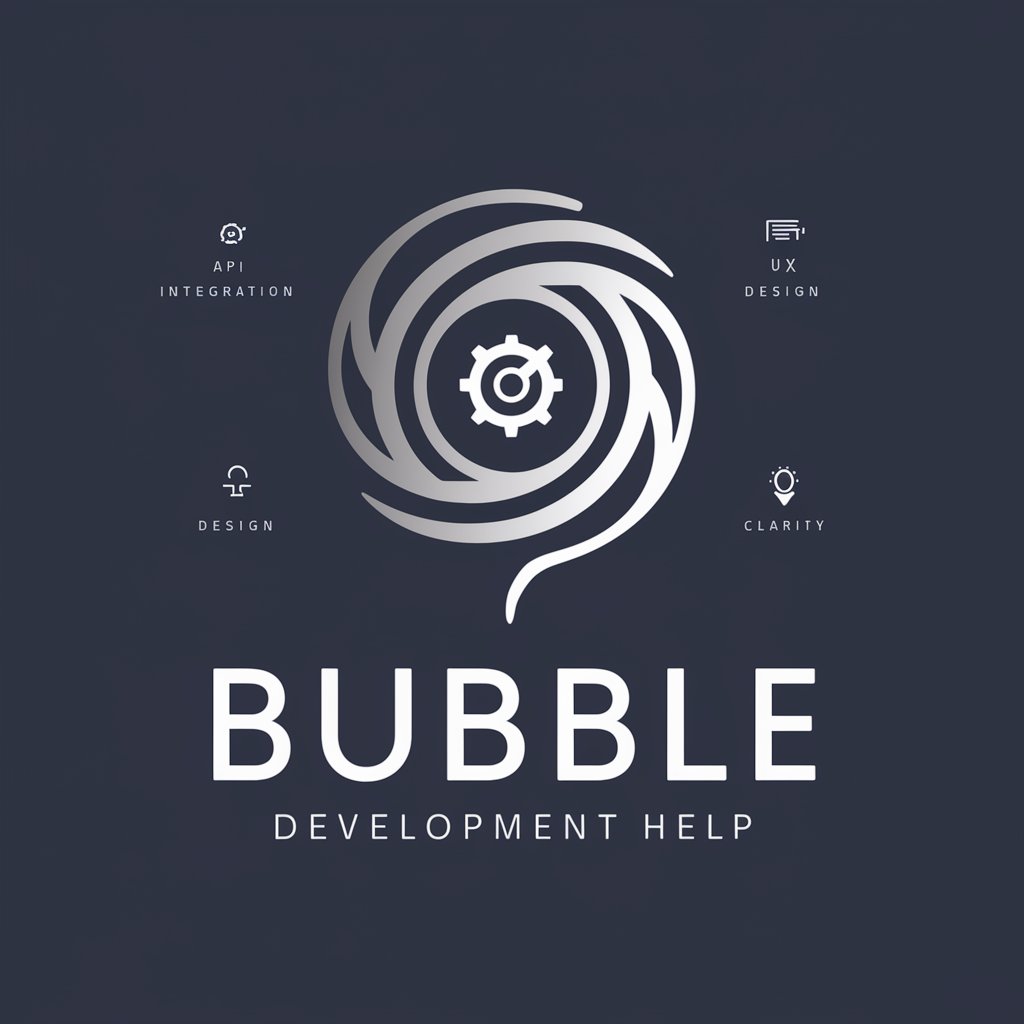
Bubble Plugin API V4 Code Refactorer - Bubble Plugin API V4 Refactoring

Welcome to the Bubble Plugin API V4 Code Refactorer!
Streamline your Bubble plugin updates with AI-powered refactoring.
Refactor your Bubble plugin code to API V4 by...
Enhance your Bubble plugin with the latest API V4 features by...
Transition smoothly to Bubble Plugin API V4 with...
Master the new Bubble Plugin API V4 by...
Get Embed Code
Overview of Bubble Plugin API V4 Code Refactorer
The Bubble Plugin API V4 Code Refactorer is designed to assist developers in upgrading their Bubble plugins from older versions to the latest version 4, which utilizes Node.js v18. This tool is crucial for adapting to the new asynchronous programming model introduced in API V4. It focuses on converting synchronous code patterns, which were prevalent in earlier versions, to asynchronous ones, leveraging promises and async/await syntax. This shift is essential for enhancing performance and scalability. An example scenario involves transforming a plugin that uses 'context.request' for synchronous HTTP requests to use 'context.v3.request' with async/await, thereby making the HTTP calls non-blocking and more efficient. Powered by ChatGPT-4o。

Core Functionalities of Bubble Plugin API V4 Code Refactorer
Conversion to Async/Await
Example
Transforming synchronous 'context.request' calls to asynchronous 'context.v3.request' using async/await.
Scenario
When a plugin needs to fetch data from an API, the refactorer helps update the code to make non-blocking API calls, improving the plugin's performance and user experience.
Handling Promises
Example
Converting legacy 'context.async' usage to direct promise handling.
Scenario
In a weather plugin, instead of using 'context.async' for fetching weather data, the refactorer aids in directly awaiting the promise returned by the weather API client.
Node-fetch Integration
Example
Replacing 'context.request' with 'node-fetch' for HTTP requests.
Scenario
For a plugin interacting with external services like a payment gateway, the refactorer guides in implementing 'node-fetch' to make the HTTP requests more efficient and align with modern JavaScript practices.
Utilizing Utils.promisify
Example
Transforming callback-based Node.js functions to promise-based using 'util.promisify'.
Scenario
In a plugin that interacts with the server's file system, the refactorer helps in converting the callback-based 'fs' module functions to promises for better flow control and error handling.
Target User Groups for Bubble Plugin API V4 Code Refactorer
Bubble Plugin Developers
Developers who have created plugins using older versions of Bubble's Plugin API and need to update their code to comply with the latest standards. They benefit from streamlined code migration, ensuring their plugins remain functional and efficient.
New Bubble Developers
Individuals new to Bubble plugin development can use the tool to learn modern asynchronous JavaScript practices, especially in the context of Bubble's environment, thereby accelerating their learning curve.
Freelance Software Developers
Freelancers tasked with updating or maintaining Bubble plugins for clients. The tool facilitates quick and efficient code refactoring, enabling them to handle multiple projects with varying requirements.
EdTech Companies
Educational technology firms that develop plugins for educational platforms or courses can utilize this tool to ensure their plugins are up-to-date, reliable, and offer a seamless learning experience.

How to Use Bubble Plugin API V4 Code Refactorer
1
Start with a free trial at yeschat.ai, no login or ChatGPT Plus required.
2
Familiarize yourself with the Bubble Plugin API V4 documentation to understand the changes from previous versions.
3
Review your existing plugin code to identify areas that need updating or refactoring to be compatible with API V4.
4
Use the Bubble Plugin API V4 Code Refactorer to convert your code, paying special attention to syntax changes, especially the transition to promises for asynchronous operations.
5
Test your refactored plugin extensively in Bubble to ensure it functions correctly with the new API version, and make adjustments as necessary.
Try other advanced and practical GPTs
Perfect Git Helper
Crafting clear, professional git commit messages made easy.

AskTheCode
Navigate Github with AI Precision

Auto Stock Analyst Expert
Empower your investment decisions with AI

Talk to a TV / Movie Character
Immerse in conversations with your favorite screen characters.

PsychAIc: The Psychic Rock Paper Scissors AI
Outsmart the psychic AI in Rock Paper Scissors

Commander Bob
Sassy tech advice at your command.

のYouTube Growth Master
Elevate Your YouTube Presence with AI

WebDev Mockups
Transforming Ideas into Visual Designs

Get Things Done!
Empowering productivity with AI-driven guidance.

The short form writer
Crafting viral content with AI precision

tesla/acc
Unlocking the Secrets of Tesla with AI

Text Analyzer
Enhance Your Writing with AI Insights

FAQs about Bubble Plugin API V4 Code Refactorer
What is the Bubble Plugin API V4 Code Refactorer?
It's a tool designed to help developers update their Bubble plugins to be compatible with the latest version of Bubble's plugin API, which uses Node v18 and introduces significant changes such as the use of promises.
How does the refactorer handle asynchronous operations?
The refactorer converts existing asynchronous operations to use promises, aligning with Node v18's async/await syntax. This includes updating methods to use `context.v3.request` instead of `context.request`.
Can it convert all types of plugin components?
Yes, the refactorer is designed to assist with updating API connections, actions, and elements, ensuring they comply with the structural and syntax changes in API V4.
Is manual intervention required after using the refactorer?
While the refactorer automates much of the conversion process, developers may need to manually review and adjust their code to ensure optimal performance and compatibility, especially for complex plugins.
What are the prerequisites for using the refactorer?
Developers should have a basic understanding of the Bubble plugin architecture, familiarity with JavaScript and Node v18, and access to their existing plugin code that needs updating.





